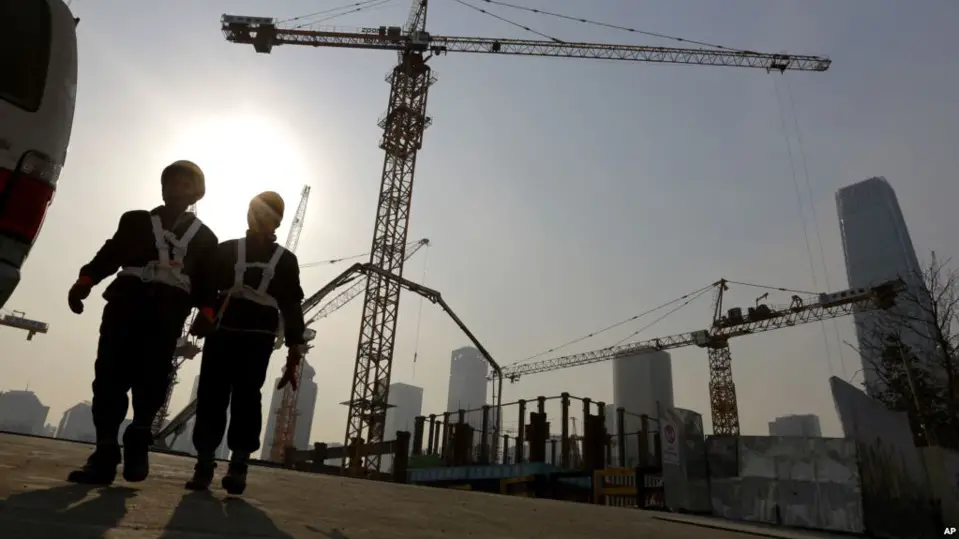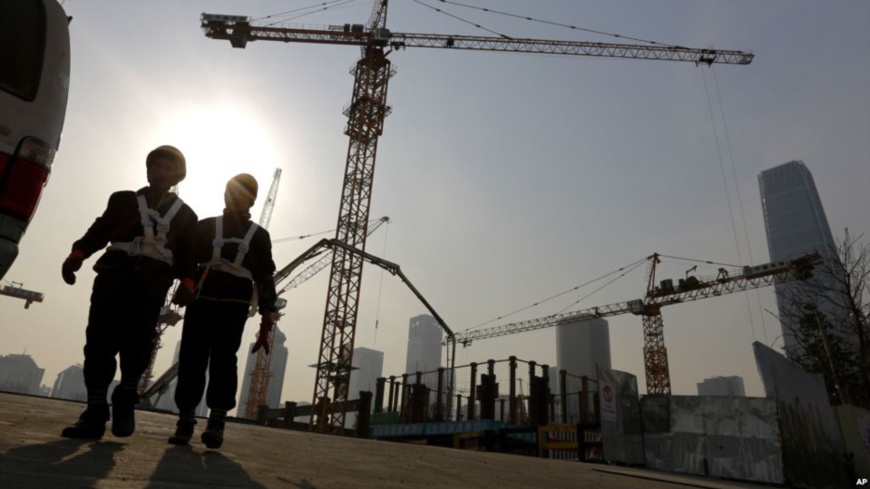By Wang Ke, Lin Lili from People’s Daily
The trade war ignited by the US against the whole world will bring incalculable side-effects to world economy as it will definitely undermine the confidence in international cooperation and hit a large number of economies, an expert warned after the US continued its trade aggression despite of strong opposition.
“The US is not only launching a trade war with China, but also with the whole world, dragging the world economy into danger,” China’s Ministry of Commerce stressed in a recent statement released on July 12.
“When the US willfully exits from groups based on its own interests under the pretext of ‘American First’, it becomes an enemy to all,” the statement pointed out.
It not only initiates the 301 investigation against China based on so-called intellectual property right (IPR), but also launches the 232 investigation against key global economies in the name of national security and creates trade frictions in steel, aluminum, automobile and other key industries, the ministry added in the statement.
Many World Trade Organization (WTO) members have already taken countermeasures against the US and requested consultations with the US under the WTO dispute settlement mechanism, according to the statement.
This larger-than-ever trade war provoked by the US is not a game between China and the US, but a fight encompassing the whole globe, said Li Yong, deputy director at the China Association of International Trade.
History has proved that a trade war usually starts with an aim of injuring others, but ends up with lose-lose results. Back to 1930s, world trade declined by some 66% between 1929 and 1934 as a result of the trade war started by the US.
The Organization for Economic Cooperation and Development (OECD) projects that a 10 percent rise in trade costs would lower global trade by 6% because of the countermeasures other countries take against the increased tariffs from the US.
A trade war will severely hurt global industrial and value chains, cautioned Zhang Yuyan, director of Institute of World Economics and Politics (IWEP) at Chinese Academy of Social Sciences (CASS).
He explained that in today’s world with intertwined interests, the industry and value chains have taken shape, and a trade war at this moment will generate uncertainties to costs, prices and flow of global goods.
The trade war will damage the trade and economic order of the globe as well, stressed Li Wei, director of the Institute of America and Oceania Study under the Ministry of Commerce, adding that global trade is an important engine driving the significant growth of world economy.
Descending itself from a “rule-maker” of the international trade to a “rule-breaker”, the US is not only violating the spirit of contract, a basis of market economy, but also overturning the world’s open trade order, he added.
WTO Director-General Roberto Azevedo pointed out that if the system of settling trade disputes is undermined, trade flows would fall by 60%, while the growth of global economy could contract by 2.4 percentage points.
“The trade protectionist policies of the US is ruining the world economy,” warned Li Yong, adding the given the fragile recovery pace of world economy, the risks emerged from trade war will put business confidence and investment at cliff.
An all-out global trade war could cut the world's economic growth by 1% if the US turns its threatening words into actions, S&P estimated.
Bank for International Settlements (BIS) also warned the threats of rising tide of protectionism, saying it may lead to a slowed growth pace or even economic recession.
What the US did not only disappoints the international community, but also draws domestic resistance. Shortly after the White House announced its unilateral decisions, the stakeholders, including the chambers of commerce, industrial association, scholars, as well as the financial, agricultural and manufacturing sectors poured their objection on it.
The US Chamber of Commerce, in a recent report, argued strenuously against the increased US tariffs, explaining that it will hurt the interests of US companies and consumers and finally put off the recovery step of US economy since the consumers and firms will have to pay more costs for their daily necessities and raw materials.
Moody's predicted that the trade war will probably cost the US about 250,000 jobs and bring the US households rising life expenditure.
The US’ move has put multilateral trading system at danger, and the opposition voice against such protectionism should be sent out by all countries together, according to Li Yong.
He called on each country to, under the banner of economic globalization, accelerate their negotiations on bilateral, multilateral or regional agreements of free trade, improve global economic governance, back multilateral trading system, and build an open world economy together.
“The US is not only launching a trade war with China, but also with the whole world, dragging the world economy into danger,” China’s Ministry of Commerce stressed in a recent statement released on July 12.
“When the US willfully exits from groups based on its own interests under the pretext of ‘American First’, it becomes an enemy to all,” the statement pointed out.
It not only initiates the 301 investigation against China based on so-called intellectual property right (IPR), but also launches the 232 investigation against key global economies in the name of national security and creates trade frictions in steel, aluminum, automobile and other key industries, the ministry added in the statement.
Many World Trade Organization (WTO) members have already taken countermeasures against the US and requested consultations with the US under the WTO dispute settlement mechanism, according to the statement.
This larger-than-ever trade war provoked by the US is not a game between China and the US, but a fight encompassing the whole globe, said Li Yong, deputy director at the China Association of International Trade.
History has proved that a trade war usually starts with an aim of injuring others, but ends up with lose-lose results. Back to 1930s, world trade declined by some 66% between 1929 and 1934 as a result of the trade war started by the US.
The Organization for Economic Cooperation and Development (OECD) projects that a 10 percent rise in trade costs would lower global trade by 6% because of the countermeasures other countries take against the increased tariffs from the US.
A trade war will severely hurt global industrial and value chains, cautioned Zhang Yuyan, director of Institute of World Economics and Politics (IWEP) at Chinese Academy of Social Sciences (CASS).
He explained that in today’s world with intertwined interests, the industry and value chains have taken shape, and a trade war at this moment will generate uncertainties to costs, prices and flow of global goods.
The trade war will damage the trade and economic order of the globe as well, stressed Li Wei, director of the Institute of America and Oceania Study under the Ministry of Commerce, adding that global trade is an important engine driving the significant growth of world economy.
Descending itself from a “rule-maker” of the international trade to a “rule-breaker”, the US is not only violating the spirit of contract, a basis of market economy, but also overturning the world’s open trade order, he added.
WTO Director-General Roberto Azevedo pointed out that if the system of settling trade disputes is undermined, trade flows would fall by 60%, while the growth of global economy could contract by 2.4 percentage points.
“The trade protectionist policies of the US is ruining the world economy,” warned Li Yong, adding the given the fragile recovery pace of world economy, the risks emerged from trade war will put business confidence and investment at cliff.
An all-out global trade war could cut the world's economic growth by 1% if the US turns its threatening words into actions, S&P estimated.
Bank for International Settlements (BIS) also warned the threats of rising tide of protectionism, saying it may lead to a slowed growth pace or even economic recession.
What the US did not only disappoints the international community, but also draws domestic resistance. Shortly after the White House announced its unilateral decisions, the stakeholders, including the chambers of commerce, industrial association, scholars, as well as the financial, agricultural and manufacturing sectors poured their objection on it.
The US Chamber of Commerce, in a recent report, argued strenuously against the increased US tariffs, explaining that it will hurt the interests of US companies and consumers and finally put off the recovery step of US economy since the consumers and firms will have to pay more costs for their daily necessities and raw materials.
Moody's predicted that the trade war will probably cost the US about 250,000 jobs and bring the US households rising life expenditure.
The US’ move has put multilateral trading system at danger, and the opposition voice against such protectionism should be sent out by all countries together, according to Li Yong.
He called on each country to, under the banner of economic globalization, accelerate their negotiations on bilateral, multilateral or regional agreements of free trade, improve global economic governance, back multilateral trading system, and build an open world economy together.
 Menu
Menu
 US is dragging world economy into danger: experts
US is dragging world economy into danger: experts

















